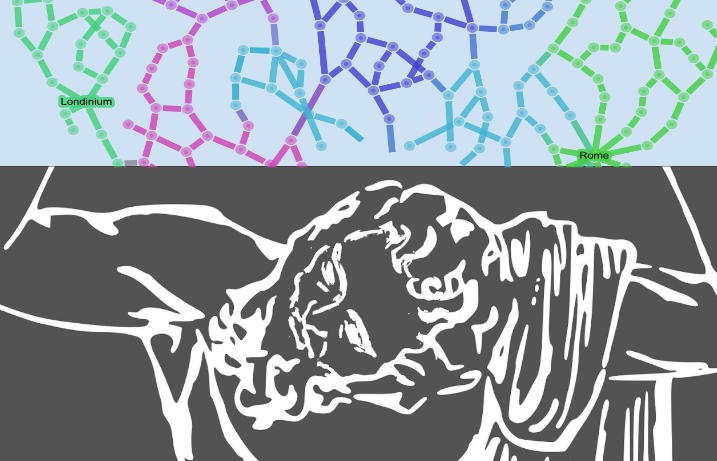Elijah Meeks
Elijah Meeks is the Digital Humanities Specialist at Stanford University, where he helps bring network analysis, text analysis, and spatial analysis to bear on traditional humanities research questions. He has worked as the technical lead on The Digital Gazetteer of the Song Dynasty, Authorial London, and ORBIS: The Stanford Geospatial Network Model of the Roman World. In his time at Stanford, he's worked with Mapping the Republic of Letters, the Stanford Literary Lab, and the Spatial History Lab, as well as individual faculty and graduate students, to explore a wide variety of digital humanities research questions.
Entries
Topic modeling could stand in as a synecdoche of digital humanities. It is distant reading in the most pure sense: focused on corpora and not individual texts, treating the works themselves as unceremonious “buckets of words,” and providing seductive but obscure results in the forms of easily interpreted (and manipulated) “topics.”
(Read more)

There are, broadly speaking, four expressions of digital humanities scholarship: research utilizing digital objects, tools, and methods; the publication of the products of that research; the creation, extension, and annotation of digital archives; and the development or improvement of digital tools.
(Read more)
ORBIS is self-defined as a historical transportation network model of the Roman world, but while it is fundamentally a computational model, it is also part of a genre of objects that could be referred to as interactive scholarly works, and so in explaining how to use ORBIS it becomes necessary to also engage with interactive scholarly works in general.
(Read more)
Recently at a workshop on digital tools for the humanities, a Stanford graduate student rather poignantly noted that oftentimes collaboration with computer scientists felt more like colonization by computer scientists. This statement, even if not true, is far too sharp to ignore.
(Read more)

